Stephen Port trial: Alleged serial killer 'tried to frame victim'
- Published
The prosecution alleges Stephen Port met his victims on gay networking sites
A chef accused of murdering four men by giving them drugs overdoses tried to frame one of his victims for the death of another, a court has heard.
Stephen Port, of east London, planted a fake suicide note on the body of Daniel Whitworth, the Old Bailey was told.
The note, purported to have been penned by Mr Whitworth, said he blamed himself for the death of another of Mr Port's alleged victims Gabriel Kovari.
Their bodies were found in the same churchyard. Mr Port denies murder.
The 41-year-old, from Barking, has pleaded not guilty to a total of 29 offences, including four counts of murder and seven of rape, relating to 12 men over three-and-a-half years.
'Wicked attempt'
The Old Bailey was told that in an "extraordinary" twist of fate, Mr Port's second and third alleged victims, Mr Kovari and Mr Whitworth, were found by the same dog walker in a churchyard 400m from Mr Port's flat.
Mr Port is accused of having dragged their bodies there after murdering them.
Mr Kovari, who had been living with Mr Port, was found dead from a drugs overdose on 28 August 2014, then on 20 September the body of Mr Whitworth was discovered near the same spot clutching an apparent suicide note.
The court heard Mr Port made a "wicked attempt" to frame Mr Whitworth for the death of Mr Kovari.
Prosecutor Jonathan Rees QC told jurors the note was written to give the impression Mr Whitworth had taken an overdose because he blamed himself for Mr Kovari's death.
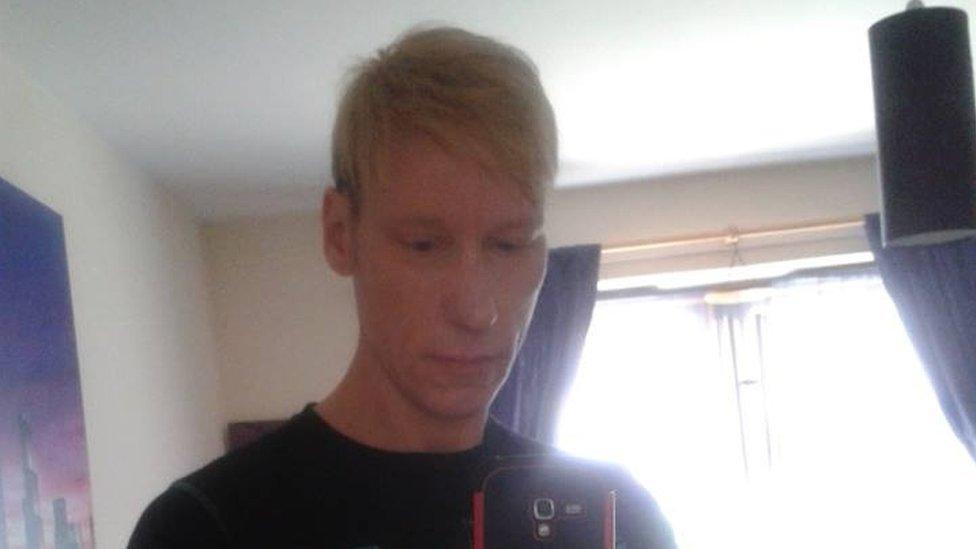
Stephen Port spent three months in prison last year
At the time, police accepted the apparent suicide note on face value and did not investigate further, he said.
The trial has heard that Mr Port used the internet to find his victims, whom he plied with the drug GHB/GBL so he could have sex with them while they were unconscious.
His alleged victims were Mr Kovari, 22, from Lewisham, Mr Whitworth, 21, from Gravesend, Kent, Jack Taylor, 25, from Dagenham, east London, and Anthony Walgate, 23, originally from Hull.
Earlier on Thursday, the trial heard how Mr Walgate was found dead outside the defendant's block of flats in Barking in the early hours of 19 June 2014.
The court heard that Mr Port called an ambulance, claiming to have returned home from a nightshift to discover an unknown male lying unconscious by the front door to the communal entrance.
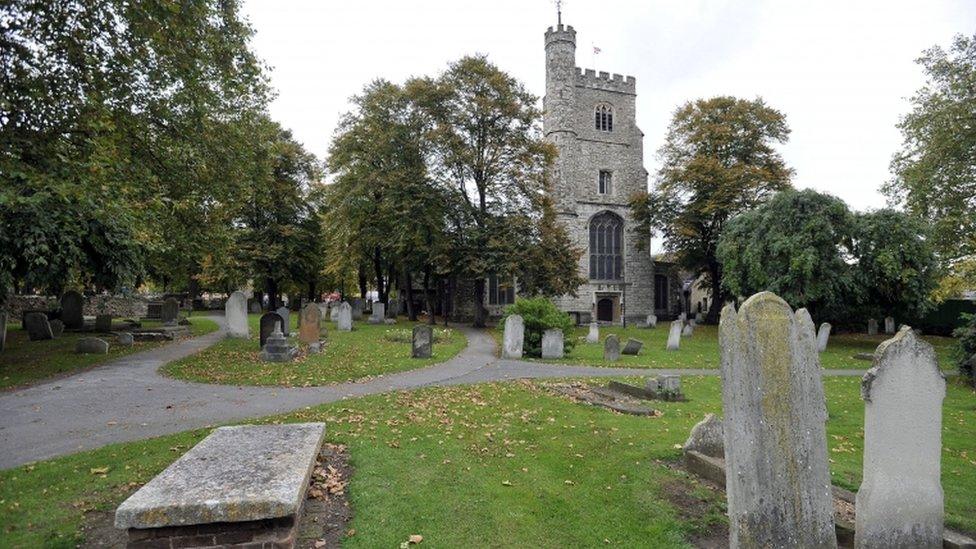
The bodies of three men were found in or around the churchyard close to Mr Port's home in Barking
Mr Rees said officers investigating Mr Walgate's death later realised the defendant had hired the 23-year-old as a male escort and arrested Mr Port on 26 June on suspicion of perverting the course of justice.
The jury heard that in a police interview that day, Mr Port asked a detective: "Can I just say for the scenario - if it was an accident, and if he did have a fit in my place, is that still my fault?"
Initially, Mr Rees said, the defendant denied having met Mr Walgate but later admitted spending time in his flat with him, where Mr Port claimed Mr Walgate willingly took GHB/GBL.
Mr Rees said the defendant's account was that he had later found Mr Walgate "stiff" and "rigid" in bed and had panicked before placing him outside the flat and calling an ambulance.
Mr Port pleaded guilty to perverting the course of justice and was sentenced to eight months in prison in March 2015. He was released on an electronic tag in June 2015.
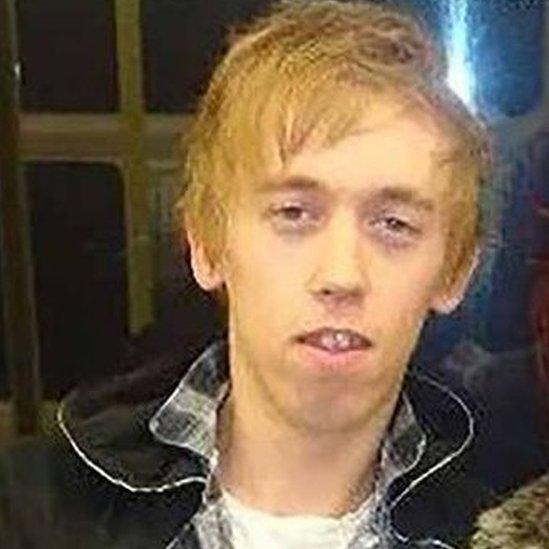
Anthony Walgate died while visiting Mr Port's flat in June 2014
The prosecution said it now alleged that "it was the defendant and not Anthony Walgate who added the liquid GBL into the drink that Mr Walgate consumed".
Mr Rees said it "was not a case of Mr Walgate unintentionally taking an overdose that killed him".
"The considerable lengths to which the defendant went when attempting to cover up his association with Mr Walgate reveal the guilt he felt about what had happened," Mr Rees said.
Mr Walgate, an occasional escort, had told a friend details of a planned sleepover with a man he had met online, jokingly saying it was "in case I get killed", the court heard.
The trial continues.
- Published5 October 2016
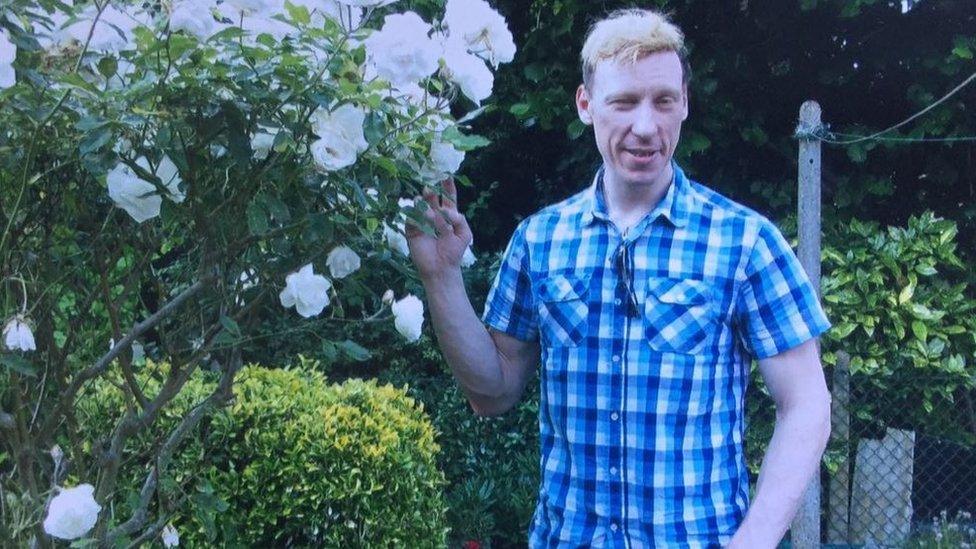
- Published5 October 2016
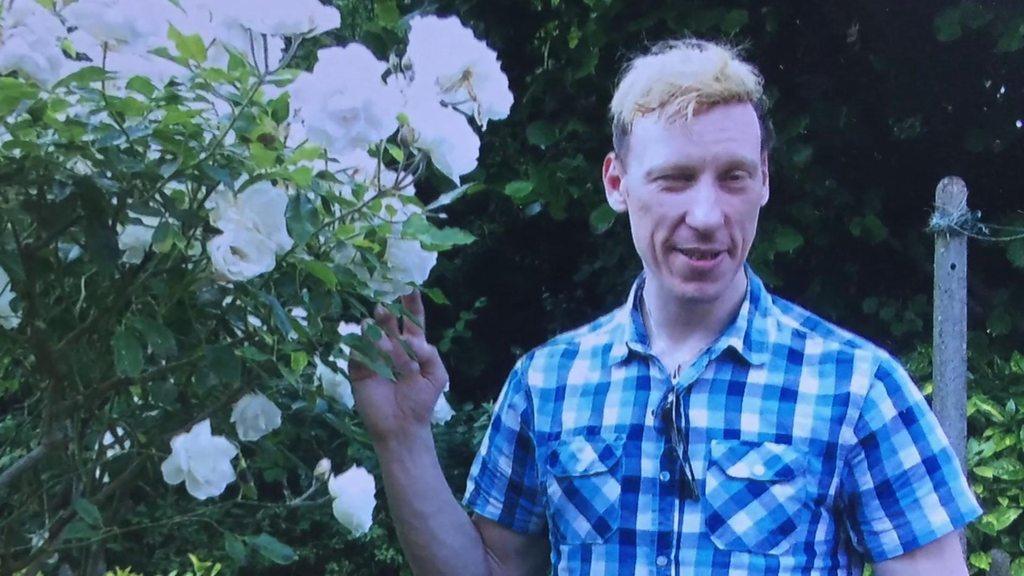
- Published25 July 2016
